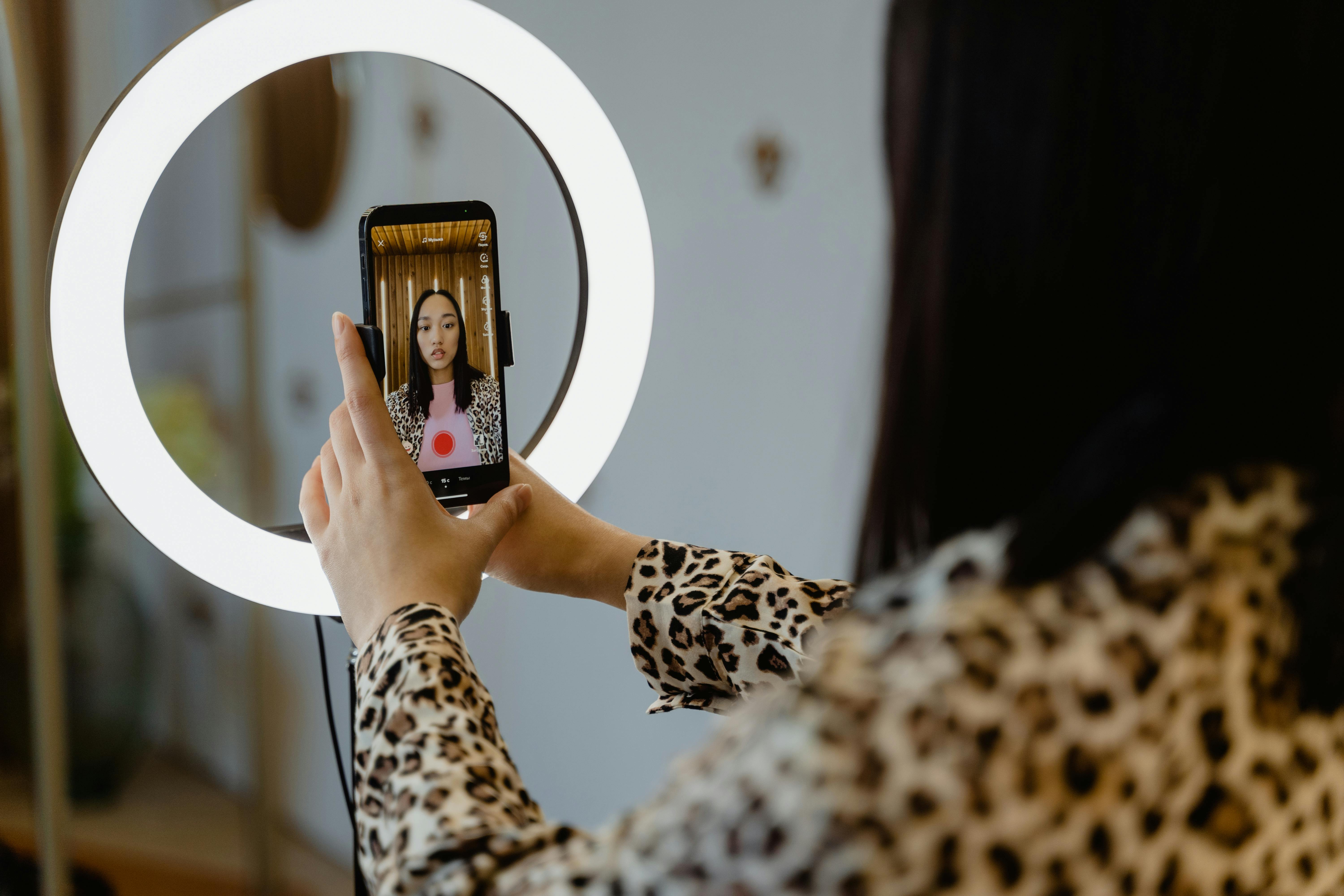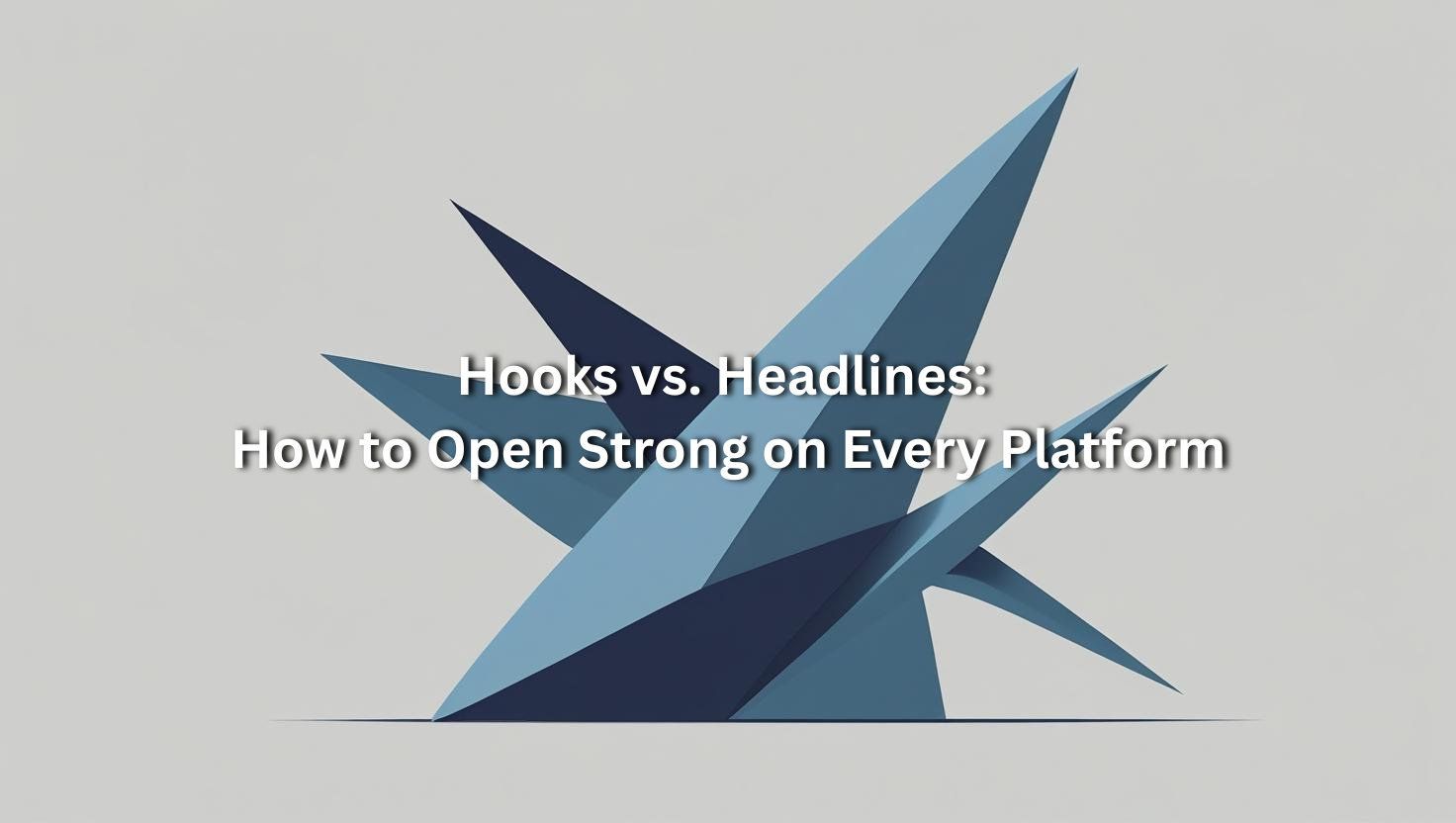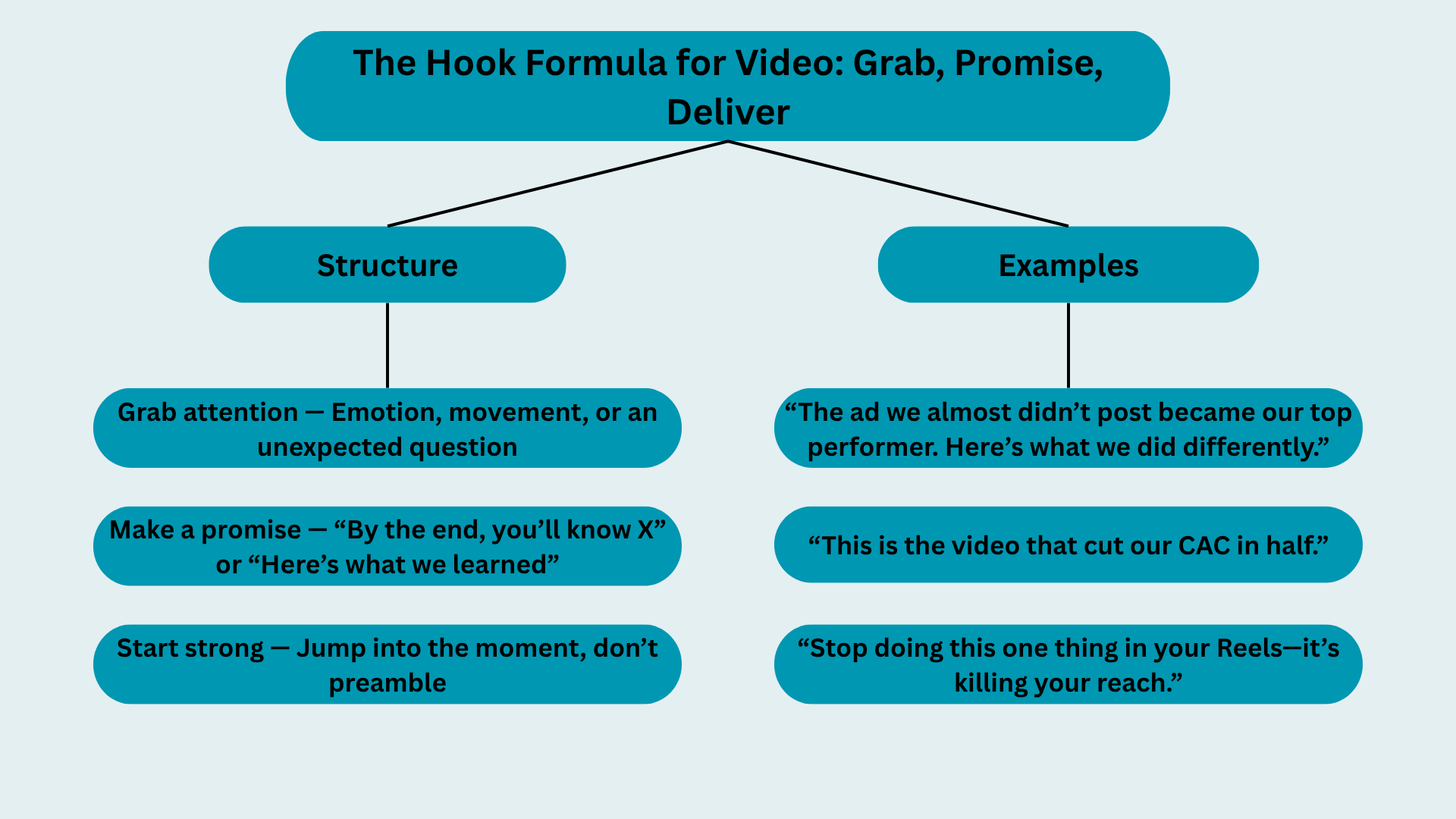
What grabs attention on TikTok might flop on LinkedIn. Here’s how to lead with impact everywhere you post.
If you're not catching your audience's attention in the first 2–3 seconds, you’re likely losing them. It doesn't matter how good your offer is or how polished your visuals are—if the opening line doesn’t hook them, the rest won’t matter.
In 2025, platform-native intros are everything. Whether you're posting a short-form video, launching an ad, or writing a LinkedIn carousel, the way you open determines whether your audience engages—or scrolls past.
And yet, so many brands confuse hooks and headlines.
In this article, we’ll break down the key differences, show you how to structure platform-optimized openings, and share how AI tools like Clicks.Video help you generate and test multiple variations without slowing down your content machine.

Let’s start with the basics.
Headlines are for clarity.
Hooks are for attention.
On platforms like LinkedIn or blog posts, a headline works fine.
But on TikTok, Reels, or Shorts, a hook is the price of admission.
Your video hook doesn’t need to be complicated—it just needs to feel human and urgent.
Here’s a simple structure:
These lines hook because they’re incomplete without context.
They force the viewer to stay for the rest.

Headlines still have a place—especially in written content, paid ads, and LinkedIn-style videos where sound may be off or the tone is more professional.
Examples of strong headlines:
These inform and intrigue, without feeling clickbait-y.
The key is audience expectation. Know whether they’re skimming, listening, or reading—and structure your intro accordingly.
🧠 Example: “If you’re not using this format for your Reels, you’re losing money.”
🧠 Example: “We spent $200 on this ad… and here’s how it performed.”
🧠 Example: “The creative workflow we use to launch 10 ad variants in 2 hours.”
🧠 Example: “We generated 5 product videos without a camera. Here’s how.”
One of the biggest challenges with testing hooks is time. You don’t always have hours to rewrite intros, re-record VO, or refilm shots. And if you’re part of a lean marketing team, testing multiple versions usually isn’t an option.
**Clicks.Video changes that.** It’s designed to help you:
That means you can stay consistent and stay creative—without burning out your content team.
👉 Try Clicks.Video to generate scroll-stopping hooks for every platform.
In 2025, video success doesn’t just come down to budget or polish—it comes down to opening strong.
Knowing when to use a hook vs. a headline, and how to tailor it to each platform, is what separates brands that perform from those that post and pray.
Don’t wait for inspiration to strike. Use smart frameworks, generate variants, and test what grabs your audience fast.
And when in doubt? Start with the end, lead with tension, or promise value they can’t ignore.
Because when your opening hits? The rest of your video finally gets seen.